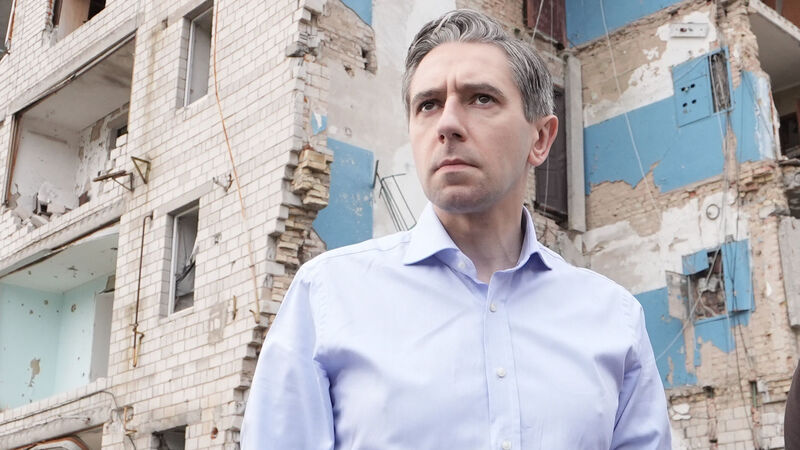Russia's embassy in Dublin accuses Tánaiste of spreading 'anti-Russian propaganda'

Tánaiste, then taoiseach, Simon Harris inspect buildings damaged by Russian shelling in Borodyanka, Ukraine, last September. Today, Thursday, Mr Harris condemned 'ongoing and escalating' Russian attacks. File picture: Stefan Rousseau/PA
The Russian embassy in Ireland has accused Tánaiste and the Irish Government of spreading "anti-Russian propaganda" about recent Russian attacks in Ukraine.
In a statement issued on Thursday morning, Simon Harris condemned the "ongoing and escalating" Russian attacks on critical infrastructure in Ukraine.














